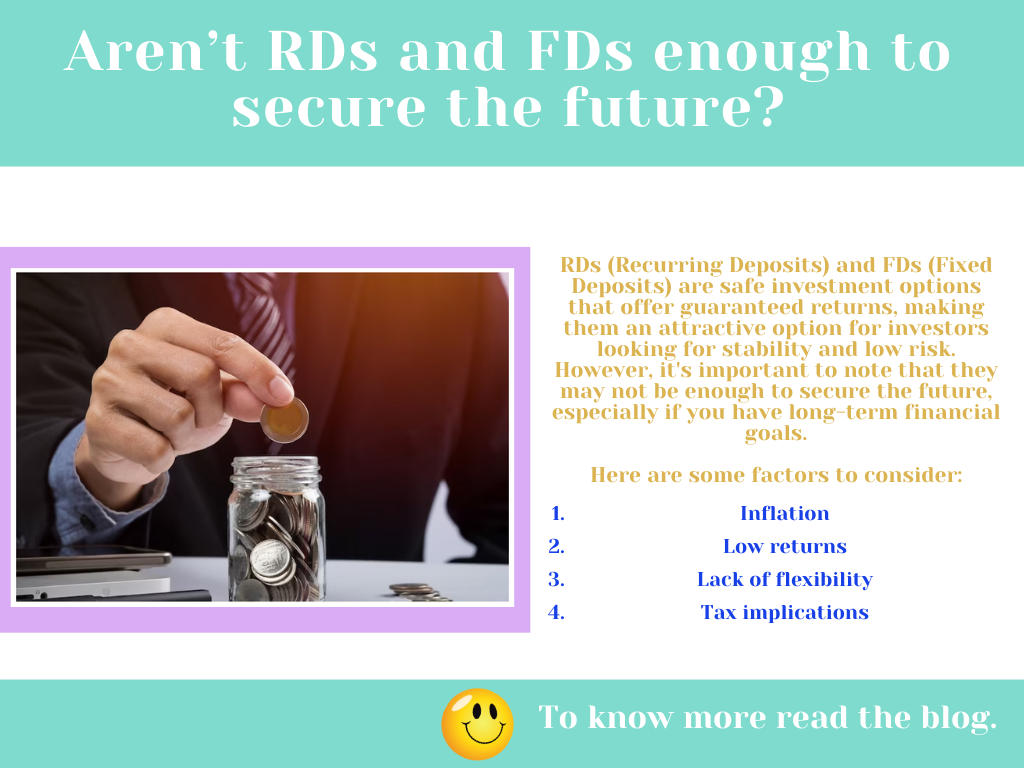Aren’t RDs and FDs enough to secure the future?
RDs (Recurring Deposits) and FDs (Fixed Deposits) are safe investment options that offer guaranteed returns, making them an attractive option for investors looking for stability and low risk. However, it's important to note that they may not be enough to secure the future, especially if you have long-term financial goals.
Here are some factors to consider:
Inflation: While RDs and FDs offer guaranteed returns, they may not keep pace with inflation. Inflation erodes the purchasing power of your money over time, and if your returns are lower than the rate of inflation, your investment may lose value in real terms.
Low returns: While FDs may offer slightly higher returns than RDs, they still offer relatively low returns compared to other investment options. In the long run, this may not be enough to help you achieve your financial goals, especially if you have higher goals, such as funding your children's education or building a retirement corpus.
Lack of flexibility: RDs and FDs have a fixed tenure, and if you withdraw your investment before the maturity date, you may have to pay a penalty. This can make it difficult to access your funds when you need them, and it can also limit your flexibility to adjust your investment strategy if market conditions change.
Tax implications: The interest earned on RDs and FDs is taxable as per the individual's tax slab. This can lower your overall returns and reduce the effectiveness of your investment strategy.
In summary, while RDs and FDs offer safety and stability, they may not be enough to secure your financial future. It is important to diversify your portfolio by investing in other asset classes like mutual funds, stocks, and bonds to achieve your long-term financial goals. A financial advisor can help you create an investment plan that is tailored to your needs and risk profile.


